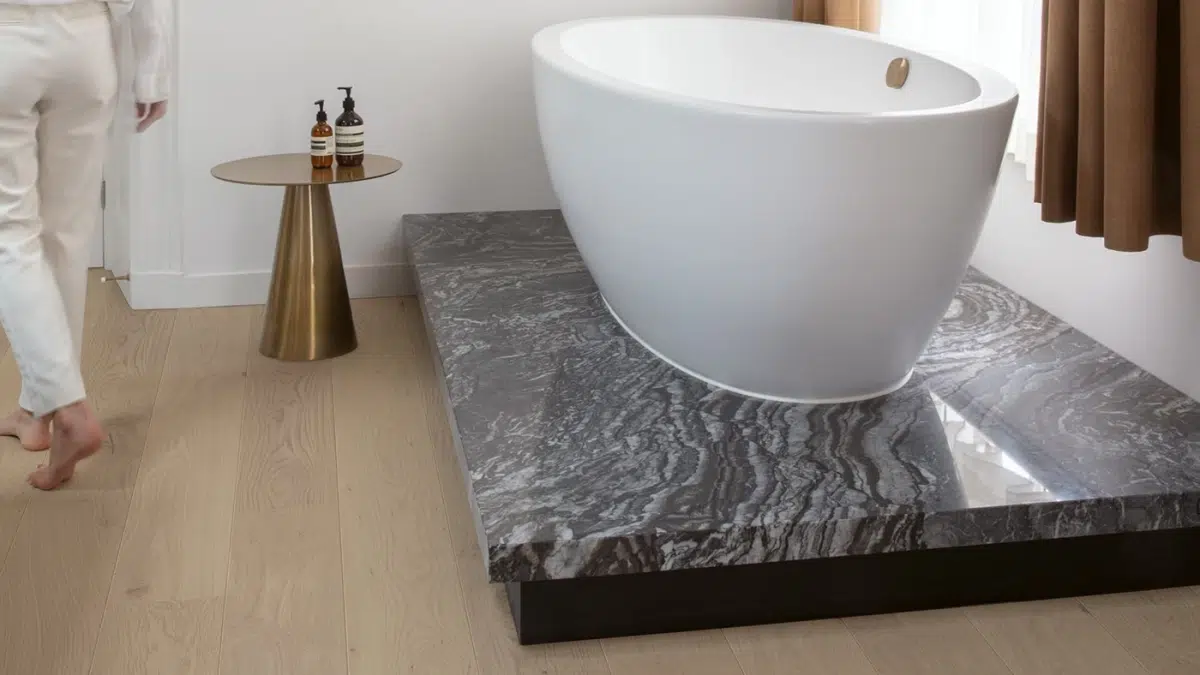E3/AS1 in the NZ Building Code
Staying attuned to the evolving landscape of building codes is imperative for both industry professionals and homeowners. A significant shift recently occurred in New Zealand’s building regulations with the introduction of Amendment 7 to Clause E3/AS1 in the NZ Building Code. Effective from November 3, 2021, this amendment brings about substantial alterations to the requirements surrounding sanitary fixtures, appliances, and flooring solutions. In this blog, we delve into the key modifications introduced by Amendment 7 and their far-reaching implications for the construction industry and homeowners alike.
Amendment 7 Clause E3/AS1 in the NZ Building Code: A Comprehensive Overview
Amendment 7 to Clause E3/AS1 in the NZ Building Code Codemarks a significant departure in building regulations, introducing fresh considerations for sanitary fixtures, appliances, and flooring solutions. Superseding Amendment 6 on November 3, 2021, these updates bring with them important revisions, among which the reclassification of certain household items stands out as particularly noteworthy.
Reimagining Fixtures and Appliances
One of the most impactful changes ushered in by Amendment 7 is the reclassification of fixtures and appliances. The once-generic designations of dishwashers and washing machines have transformed into the more significant classification of “Sanitary Appliances.” Similarly, basins and sinks are now deemed “Sanitary Fixtures.” This reclassification reflects an enhanced understanding of these items’ roles in maintaining hygiene and sanitation within built environments. Correspondingly, the standards governing their installation and up keep have been adjusted to match their newly emphasized significance.
Flooring Solutions: Prioritizing Hygiene and Practicality
Amendment 7 also ushers in a pivotal transformation concerning flooring solutions, particularly around sanitary fixtures and appliances. The updated code now mandates that acceptable flooring finishes exhibit two vital attributes: imperviousness and ease of cleaning. This mandate underscores the need to uphold hygienic environments while reducing the risk of microbial growth in moisture-prone zones.
Furthermore, the amendment specifies that the impervious and easily cleaned surface should extend a minimum of 1.5 meters from all sanitary fixtures and appliances. This change has rippling implications for design and construction, effectively ruling out certain materials such as carpets for specific areas like the rear of kitchen islands, bathrooms, and laundries.
Innovative Adaptations: ISO4760 Testing
Amendment 7 recognizes the necessity of innovation within construction materials and methodologies. It acknowledges that while some flooring solutions might not conform to the conventional norms of imperviousness and clean ability, they can still deliver comparable performance. To this end, the amendment introduces a platform for embracing alternative solutions that have successfully passed the stringent ISO4760 testing. This approach promotes flexibility, encouraging the utilization of contemporary materials capable of satisfying rigorous hygiene and durability standards.
Overcoming the Gapping Challenge
It’s imperative to recognize the challenge posed by gapping in certain flooring materials, which can be especially pronounced in kitchen areas due to fluctuating temperatures and moisture levels. To counter this issue, some flooring now necessitates the application of PVA to join the pieces and mitigate the risk of gaps. However, this solution introduces its own set of complexities and potential pitfalls.
For installers, ensuring an uninterrupted and continuous bead of PVA D3 along all joins within a 1.5-meter radius of any sanitary fixture is imperative. The margin for error in this process is non-existent, as any inconsistencies could compromise the long-term integrity of the flooring. Moreover, the applied glue must be capable of being warranted for the entire lifetime of the flooring, adding another layer of complexity to the equation.
The Natural Flooring Company: Leading The Way
In stark contrast to the intricate demands of applying PVA to every join, The Natural Flooring Company’s products offer a refreshingly streamlined approach. Their carefully engineered joints require no additional adhesive like PVA to ensure impeccable integrity. By sidestepping the complexities and uncertainties associated with PVA application, The Natural Flooring Company empowers both installers and homeowners to have confidence in the flooring’s durability, appearance, and longevity.
By opting for The Natural Flooring Company’s offerings, individuals can circumvent the potential pitfalls of applying PVA, sidestep the need for a continuous PVA bead, and free themselves from the anxiety of providing a warranty for PVA glue for the flooring’s entire lifespan. This exceptional approach not only sets a new standard for ease of installation but also contributes to a visually stunning and enduring living environment.
No Need for Waterproof Membrane
Adding to the advantages, all flooring from The Natural Flooring Company eliminates the need for a waterproof membrane to be applied to the subfloor beneath their flooring. Their surfaces are inherently impervious, alleviating the need for an additional layer of protection. This reduction in complexity not only simplifies installation but also contributes to a more efficient construction process.
Navigating the Consent Process with Confidence
For professionals, builders, and homeowners traversing the consent process with local councils, comprehending the nuances of Amendment 7 is paramount. In this transformative phase, The Natural Flooring Company emerges as a reliable partner, extending support through every step. Possessing an in-depth understanding of the revised regulations and a lineup of flooring solutions that have successfully passed the ISO4760 testing, they offer vital documentation and expert guidance to ensure seamless alignment with the updated code.
Paving the Way to Enhanced Building Excellence
Amendment 7 to Clause E3/AS1 within the New Zealand Building Code signifies a significant leap toward fortifying hygiene, resilience, and adaptability within the construction sector. The reclassification of appliances and fixtures, coupled with the stringent flooring finish requirements, mirrors an encompassing recognition of evolving modern living standards. As homeowners, professionals, and councils embrace these changes, the industry embarks on a journey to cultivate safer, more durable, and aesthetically pleasing spaces that resonate with the pinnacle of building excellence. The Natural Flooring Company and its supply partners innovative approach further propels this progression, guaranteeing a pathway to compliance and quality that’s smoother and more robust than ever before.


